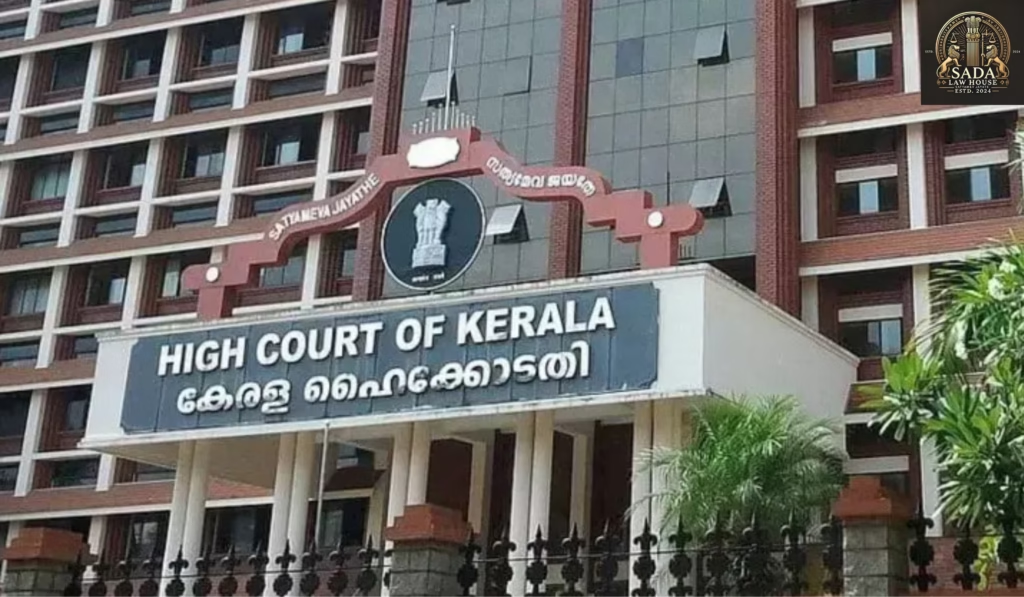Kerala High Court Rules Medical Negligence Is Not Culpable Homicide in Doctor’s Case
Trending Today Kerala High Court Rules Medical Negligence Is Not Culpable Homicide in Doctor’s Case NHAI Challenges Madras High Court’s Toll Ban on Madurai-Tuticorin Highway in Supreme Court Supreme Court Slams Misuse of Preventive Detention After Bail Grant in Kerala Case Supreme Court Directs Streamlined Implementation of RTI Act for Easier Access to Information Remission Shouldn’t Be Denied Solely on Reports of Presiding Judge or Police: Supreme Court Lays Down Factors for Premature Release Supreme Court Issues 12 Key Directions for Speedy Trial of Civil Cases ED Cannot Invoke PMLA Without Scheduled Offence: Supreme Court in Pavana Dibbur Case Maternity Benefits Must Extend Beyond Contract Period: Supreme Court Landmark Ruling Secunderabad Club v. Commissioner of Income Tax-V (2023): Supreme Court Rules Interest Income on Bank Deposits Taxable Devesh Sharma v. Union of India (2023): Supreme Court Rules B.Ed. Holders Ineligible for Primary Teaching Posts Kerala High Court Rules Medical Negligence Is Not Culpable Homicide in Doctor’s Case Prabhat Kumar Biltoria 09 June 2025 Kerala High Court clarifies that medical negligence resulting in death is not equivalent to culpable homicide under IPC Section 304. Read about the landmark ruling in Dr. K Rajagopalan case and its impact on medical negligence laws in India. Overview: Kerala High Court’s Landmark Judgment on Medical Negligence vs. Culpable Homicide The Kerala High Court recently delivered a crucial judgment distinguishing medical negligence from culpable homicide under Indian law. The court ruled that death caused by medical negligence cannot automatically be treated as culpable homicide unless there is clear intent or knowledge that death was likely to occur. Case Background: Dr. K Rajagopalan vs. Regha & Anr. In 2012, Dr. K Rajagopalan performed an appendectomy on a 10-year-old girl at a private nursing home in Palakkad. The surgery involved spinal anaesthesia administered without the presence of an anaesthetist. Tragically, the child suffered cardiac arrest and died during the procedure. Following a complaint by the child’s mother, a case was registered against Dr. Rajagopalan under Section 304 of the Indian Penal Code (IPC) for culpable homicide not amounting to murder. Key Legal Arguments and Court Findings Medical Negligence vs. Culpable Homicide Dr. Rajagopalan’s defense argued that while the incident may qualify as medical negligence, it did not meet the legal threshold for culpable homicide because there was no intent or knowledge that death was a probable outcome. The counsel emphasized that: The doctor lacked awareness that his actions would likely result in death. The legal definition of culpable homicide requires intent or knowledge of death as a probable consequence. Court’s Ruling by Justice Kauser Edappagath Justice Kauser Edappagath examined all evidence and submissions carefully, including a medical board report. The key conclusions were: No evidence showed that Dr. Rajagopalan knowingly risked the patient’s life by administering spinal anaesthesia without an anaesthetist. The doctor, a qualified medical professional, was not aware that his actions were likely to cause death. Under IPC, Section 304A, which applies to death caused by rash or negligent acts without intent, was the appropriate legal provision—not Section 304 for culpable homicide. Consequently, the High Court annulled the Sessions Court’s order and discharged Dr. Rajagopalan from the culpable homicide case. What This Ruling Means for Medical Negligence Cases in India This judgment reaffirms that medical negligence resulting in death should not be conflated with culpable homicide unless intent or knowledge to cause death is proven. Key takeaways include: Medical professionals are accountable under negligence laws but are not automatically criminally liable for homicide. Clear legal distinction helps protect doctors from unjust prosecution in tragic but unintentional outcomes. Courts must carefully assess the intent and knowledge behind medical errors before applying criminal charges. Leave a Reply Cancel Reply Logged in as Sada Law. Edit your profile. Log out? Required fields are marked * Message* Case Laws Supreme Court Directs Streamlined Implementation of RTI Act for Easier Access to Information Supreme Court Directs Streamlined Implementation of RTI Act for Easier Access to Information Sadalaw • June 8, 2025 • Case law • No Comments Remission Shouldn’t Be Denied Solely on Reports of Presiding Judge or Police: Supreme Court Lays Down Factors for Premature Release Remission Shouldn’t Be Denied Solely on Reports of Presiding Judge or Police: Supreme Court Lays Down Factors for Premature Release Sadalaw • June 8, 2025 • Case law • No Comments Supreme Court Issues 12 Key Directions for Speedy Trial of Civil Cases Supreme Court Issues 12 Key Directions for Speedy Trial of Civil Cases Sadalaw • June 8, 2025 • Case law • No Comments 1 2 3 … 5 Next »
Kerala High Court Rules Medical Negligence Is Not Culpable Homicide in Doctor’s Case Read More »



